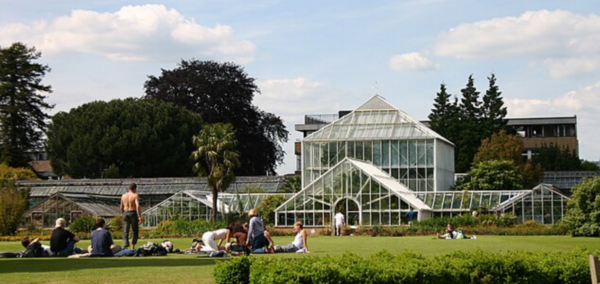
The University of Birmingham has found recycled human urine could be used to grow food
Scientists used one-year-old wee in their research, nice
The University of Birmingham has found that recycled human urine could be used to grow food.
The new study found that bacteria present in the soil was not affected by the urine when used as a fertiliser.
This means that turning human urine into a fertiliser is a “viable option”.
Even after applying large doses of one-year-old urine to the soil, scientists found it had “little impact on soil bacterial communities and produced minimal change in soil pH and salinity”.
However, due to the urine increasing the amounts of nitrifying and denitrifying groups in the soil compared to synthetic fertiliser, it may led to more nitrogen oxides being released.
Scientists at the university fertilised a spinach crop with two different doses of urine, and compared how they reacted with more standard options such as a synthetic fertiliser treatment and a water treatment without fertilisation. They then conducted the experiment across four soil tanks in greenhouse conditions.
They found that the soil’s bacterial communities were resistant to urine fertilisation with only three per cent of groups of organisms affected. The urine’s high salt concentration also had little discernible effect on the bacterial community.
The scientists, from both the University of Birmingham and L’Institut Agro Montpellier in France, have now called for more studies on urine fertilisers to be done.
According to the University of Birmingham: “Fresh urine is composed of 95 per cent water with the remaining five per cent made up of amino compounds, such as urea or creatinine, organic anions and inorganic salts making it a source of bioavailable nutrients and micronutrients for plant growth.
Most Read
“There has been great interest in re-using human urine as a crop fertiliser, but – until the publication of this study – more understanding was required on how urine can affect soil functions and microbial communities.”
Co-author Manon Rumeau, from the University of Birmingham said: “Our research highlights the potential of recycling human urine to enhance agricultural sustainability, reduce wastewater pollution, and decrease reliance on synthetic fertilisers. Stored urine can be safely applied to a plant-soil system without negatively impacting the soil microbiome.”
Featured image via Unsplash
Related stories recommended by this writer:
• Apply to The Birmingham Tab: Come join the 2024-2025 editorial team
• The essential guide for incoming Birmingham Uni freshers: Here’s what you need to know
• Construction company fined £285k following worker’s death at the University of Birmingham


















